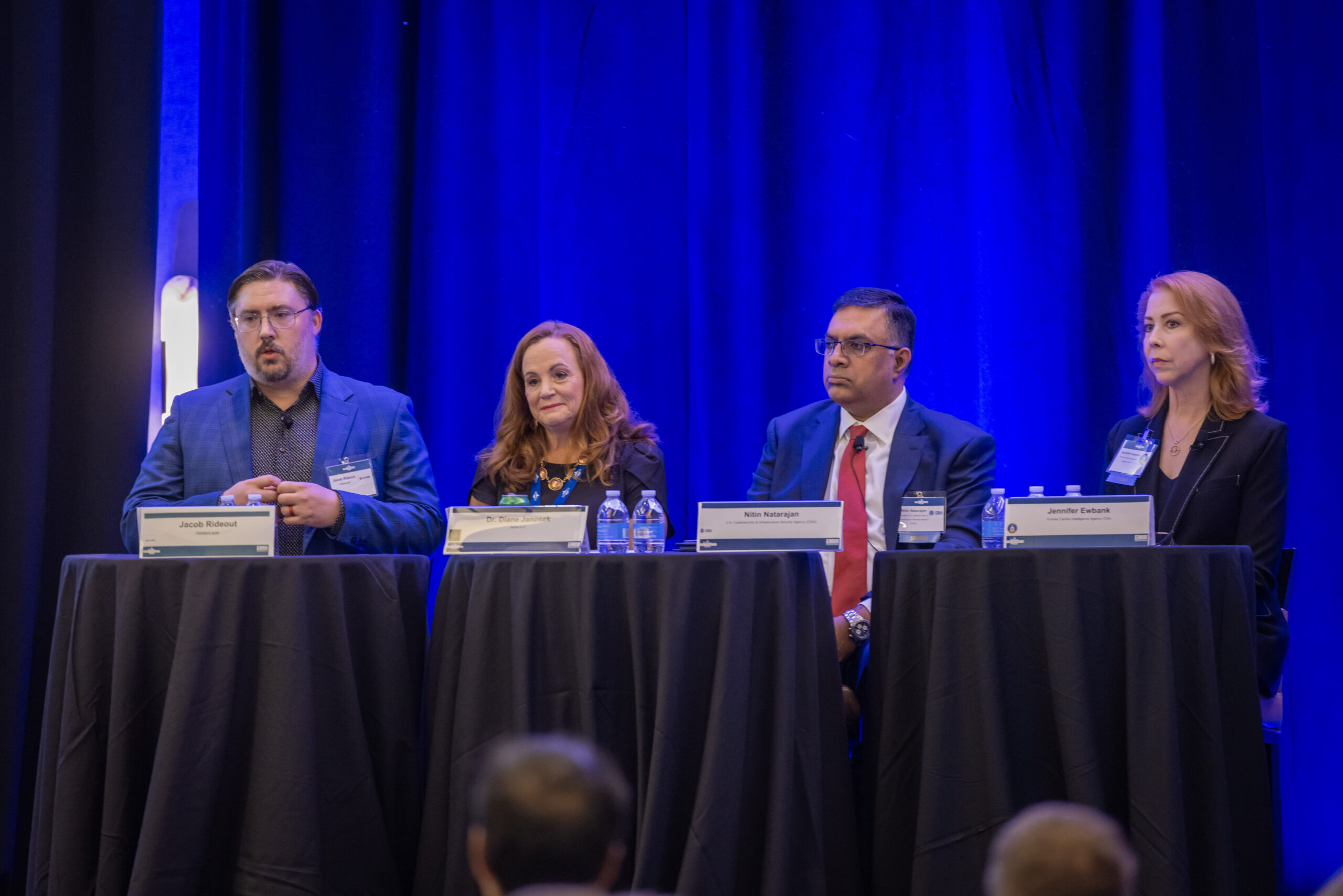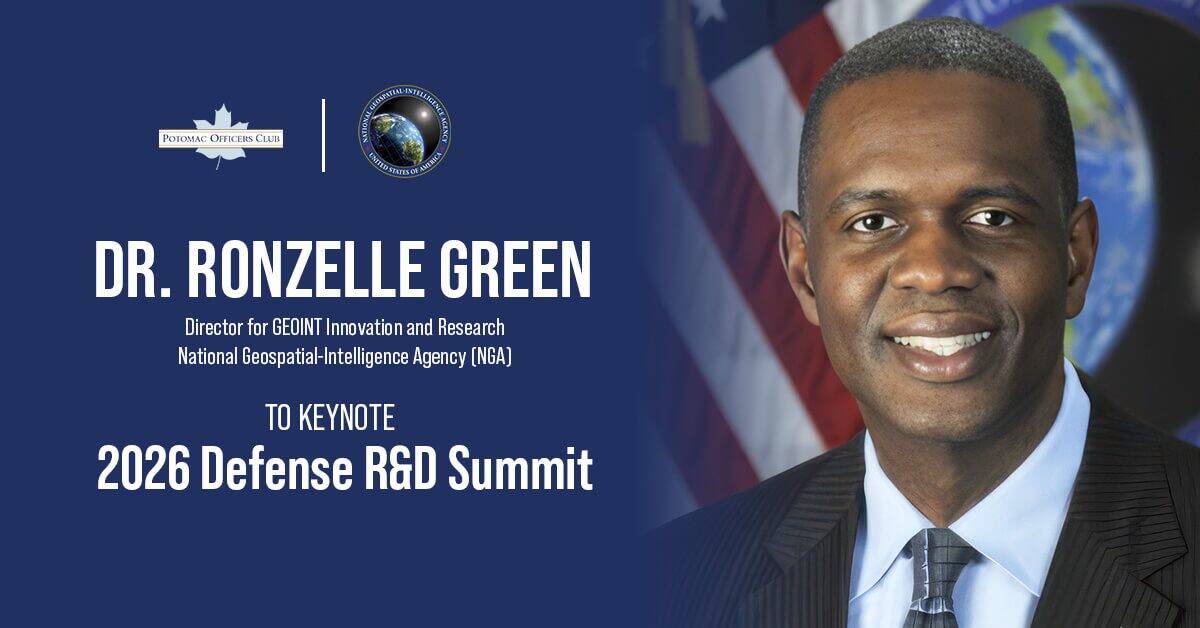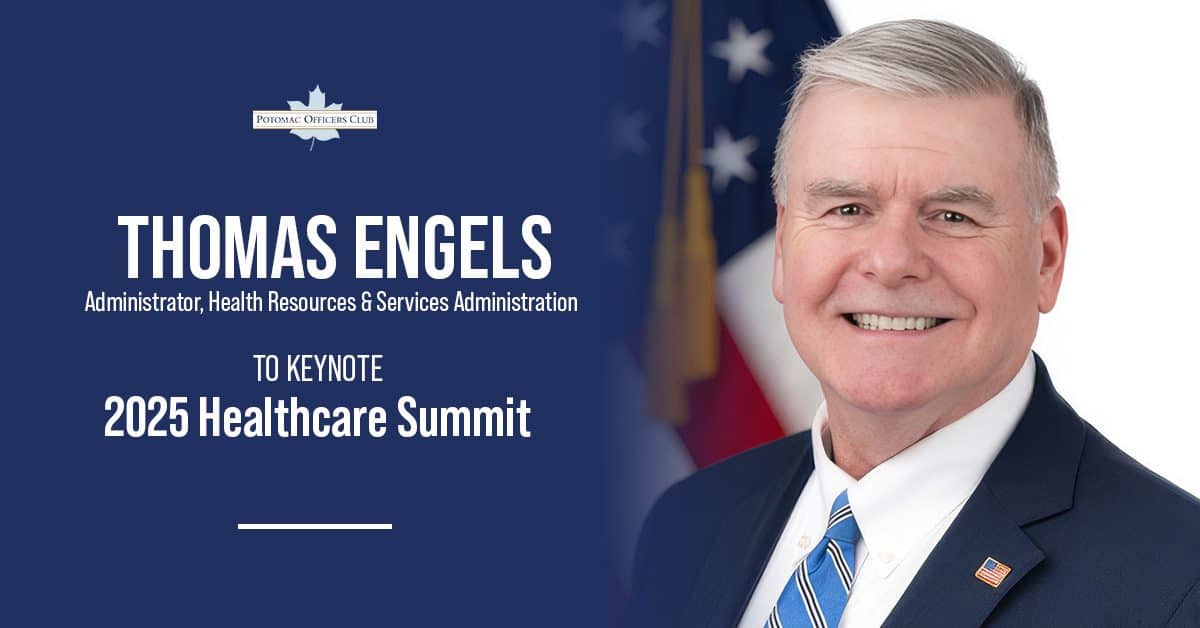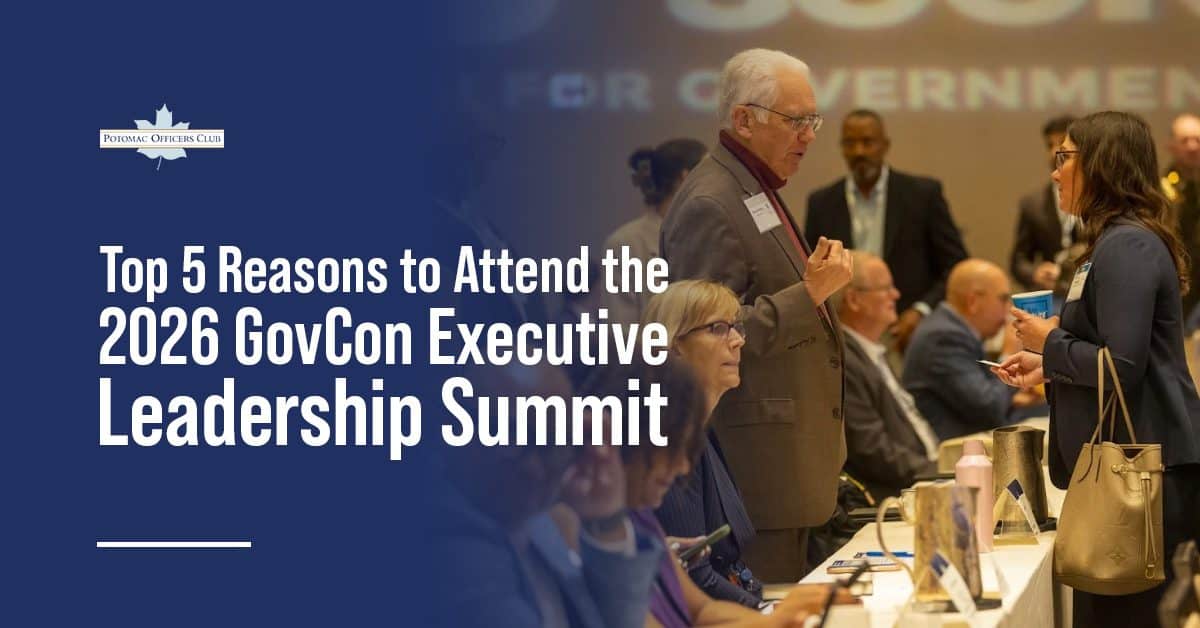
From left to right: HiddenLayer's Jacob Rideout; Dr. Diane Janosek; Nitin Natarajan; & Jennifer Ewbank. Photo: Charles McClanahan
Former CIA Official Shares How AI Can Help Defend Organizations’ Cyber Assets
There isn’t a bigger buzzword in government contracting right now — or the the technology space in general — than artificial intelligence. For the last few years, AI has dominated the conversation and been at the center of many modernization plans in both public and private sector organizations.
But Nitin Natarajan, former deputy director of the Cybersecurity and Infrastructure Security Agency, stressed that a deeper understanding is required before putting such a complex tool to use.
“I hear people all the time saying, ‘I’ve implemented AI.’ Great. What does that mean? How? What is it doing? What is it looking at? How is it driving the decision-making? What are you using it for? And they can’t answer those questions,” Natarajan said on a panel at Potomac Officers Club’s 2025 Cyber Summit in May.
“We should not be implementing technology without being able to understand the fundamentals of how the technology is using information that’s either ours or somebody else’s in a way that is helping us support our internal decision-making,” Natarajan continued.
At POC’s next big GovCon event, the 2025 Army Summit on June 18, there will be two prime opportunities to learn about how AI is directly being used to impact the service’s mission outcomes. Register for the event to discover how shrewd military officials are combining humans, machines, transport and AI on the battlefield and how agentic AI—one of the newest, most exciting strains—can transform supply chain operations.
AI as Cybersecurity Enabler
Jennifer Ewbank, former deputy director of digital innovation at the CIA and a Wash100 Award winner, conjured some compelling snapshots of her time at the spy agency. Drawing from her experience, she said that, for one, merely understanding what the vulnerabilities are in a given system is not enough anymore from a cybersecurity perspective. Ewbank said that organizations must view their digital ecosystem as a landscape they’re defending, in military terms. Pinpointing the exact location of people and devices is key, as is an ability to “leverage all the telemetry that you’ve got coming in on your systems.”
A broad spectrum of defense strategies must be implemented, like zero trust precautions, proper cyber hygiene, multi-factor authentication, workforce training and more, Ewbank said. But when there’s a cyber emergency or a pressing situation, “you just need to prioritize what is truly most important and defend those things first and best.”
AI can help with this, she stated, it can “help you understand [and] help you prioritize.”

Agentic AI—Secret Weapon?
AI pushes all parties in global competition into a more “proactive posture,” Ewbank said, but because cyber aggressors are unbound by laws, ethics, policy or regulatory guidance, the U.S. is forced to play a cat and mouse game with its devil-may-care adversaries. AI, while potentially helpful in cyber conflicts, should always have human oversight and involvement was the common understanding during her time at CIA, except in one important case.
Fighting machine-powered attacks with machines was the only time at which she could envision ceding decision-making to an AI, without, of course, sacrificing “operational continuity and…resilience.” It’s a use of agentic AI—the cutting-edge variant that intuitively helps users perform multi-step tasks, if armed with the proper data—that Ewbank feels is not being discussed widely enough.
Integration Is Essential
Another lesson Ewbank learned while at CIA is that crucial to keeping systems safe and secure is integrating functions like AI with other important components of an organization’s architecture, ones that may have previously been siloed.
“Eterprise IT, cybersecurity, data, AI—these are all separate organizations who could have structural barriers in place, [you] really [have] to integrate those efforts to effectively defend yourselves and defend a landscape rather than simply watching the things that you know about,” Ewbank instructed.
The Potomac Officers Club’s 2025 Army Summit is not short on notable names like Ewbank, as the lineup includes Army Chief Information Officer and fellow Wash100 Award winner Leonel Garciga, former Army Under Secretary and recently appointed KBR SVP Gabe Camarillo and many more. Browse the full lineup and join the GovCon AI conversation on June 18!

Category: Articles





